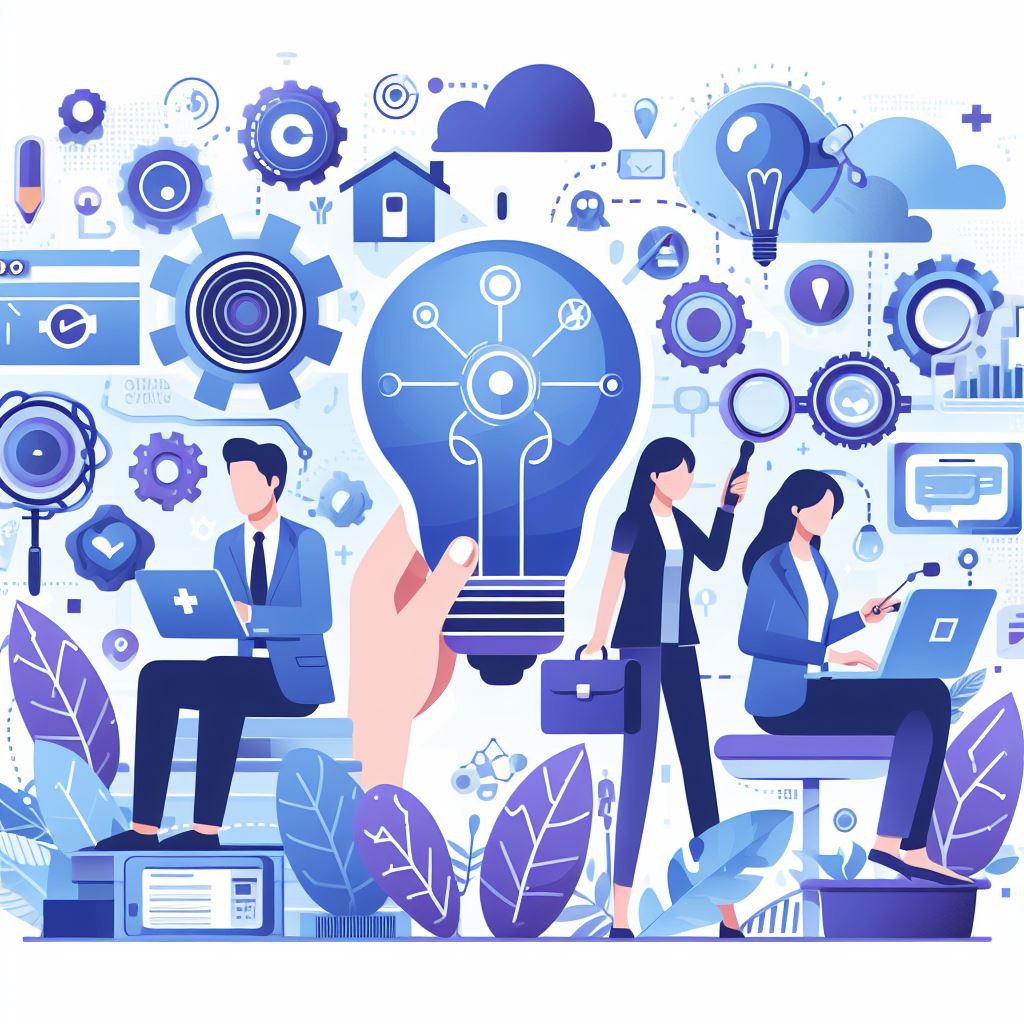Marketing Agencies Need to Evolve in the AI Age
AI, data analysis, Digital marketing, marketing agency
Marketing agency: Enhanced by AI
While many marketing agencies champion innovation for their clients, urging them to adopt new technologies, a significant portion remains hesitant to embrace similar advancements within their own walls. This reluctance towards Artificial Intelligence (AI), a major disruptive force in today’s landscape, is particularly concerning.
A recent Salesforce survey paints a clear picture: over half of all surveyed marketers are already leveraging Generative AI (GenAI), with an additional 22% actively planning its adoption. Digiday’s research reveals that nearly 70% of agencies have actively incorporated GenAI into their operations. This leaves a significant portion of the industry lagging behind, a situation that could prove detrimental to their long-term success.
Where AI can help:
Ignoring AI is not simply missing out on a trend; it’s a recipe for stagnation in a fiercely competitive market. AI’s potential extends far beyond rudimentary chatbots and automated emails. It offers a transformative toolbox:
- Streamlined workflows: AI automates repetitive tasks like data entry, report generation, and A/B testing, freeing up valuable human resources to focus on strategic initiatives and creative endeavors.
- Data-driven decisions: AI-powered insights empower agencies to make informed decisions based on real-time data analysis. This translates to more effective marketing strategies, stronger client relationships, and a significant edge over competitors.
- Hyper-personalized marketing: AI allows for the creation of highly targeted campaigns tailored to individual customer needs and preferences. This level of personalization fosters deeper customer engagement and ultimately drives superior campaign performance.
AI’s influence extends beyond streamlining workflows. It’s actively transforming various marketing activities, including:
- Content creation: AI-powered tools are assisting with copywriting, generating ideas, suggesting headlines, and even drafting initial content outlines.
- Multimedia production: AI can aid in video and audio production by automating tasks like editing, adding music, and even generating voice-overs.
- Data analysis: AI empowers agencies to analyze vast amounts of data with greater speed and accuracy, uncovering valuable insights that inform data-driven marketing strategies.
The consequences of failing to embrace AI are not to be taken lightly. While not an immediate death knell, agencies that resist this technological shift face several significant risks:
- Lower quality services: Agencies without AI might struggle to match the efficiency and quality standards set by their AI-powered competitors. This can lead to a decline in client satisfaction and ultimately, a loss of market share.
- Financial strain: AI can optimize resource allocation and reduce operational costs, leading to improved profit margins and more competitive pricing. Agencies that resist AI risk falling behind financially and losing their competitive edge.
- Limited growth potential: Data-driven decision-making and the ability to scale efficiently are crucial for sustained growth. Without AI, agencies may find it increasingly difficult to compete in a data-driven landscape.
Overcoming the challenges associated with AI adoption requires a strategic approach. Concerns regarding cost, privacy, employee resistance, and the need for a clear roadmap are valid and require careful consideration.
Building a bridge to the AI future:
- Strategic Planning: Developing a comprehensive roadmap for AI integration is crucial. This involves identifying areas where AI can have the most significant impact, ensuring team buy-in, and establishing a timeline for implementation.
- Start Small, Scale Smart: Begin with smaller, manageable projects that offer a clear return on investment. Explore cost-effective open-source tools to address budget limitations.
- Team Enablement: Actively involve your team in the AI adoption process. Provide training opportunities and foster a culture of experimentation, allowing them to integrate AI into their workflows seamlessly.
- Embrace Experimentation: Encourage your team to experiment with different AI tools and adapt their approach based on results. This fosters a culture of continuous learning and allows the agency to identify the solutions that best suit its specific needs.
- Prioritize Data Privacy: Implementing robust data protection measures is paramount. Ensuring client trust and adhering to data privacy regulations are essential in today’s digital landscape.
Bill Gates’ observation rings true: “This (AI) will change our world.” The marketing landscape undeniably favors those who can adapt and leverage this transformative technology. To stay ahead, begin your AI journey now. Unlock the potential for exponential growth and solidify your agency’s future.
Further reading:
Read more about using AI tools to improve your marketing job.
- How to Boost Operational Efficiency with AI Agents
- Generative AI is Transforming Content Creation for Digital Marketers
- Leverage AI for Hyper-Personalized Marketing Campaigns in 2025
- 5 Ways AI-Driven Decision-Making Leverage Data to Empower Business Leaders
- How are AI Agents Boosting Inbound Marketing